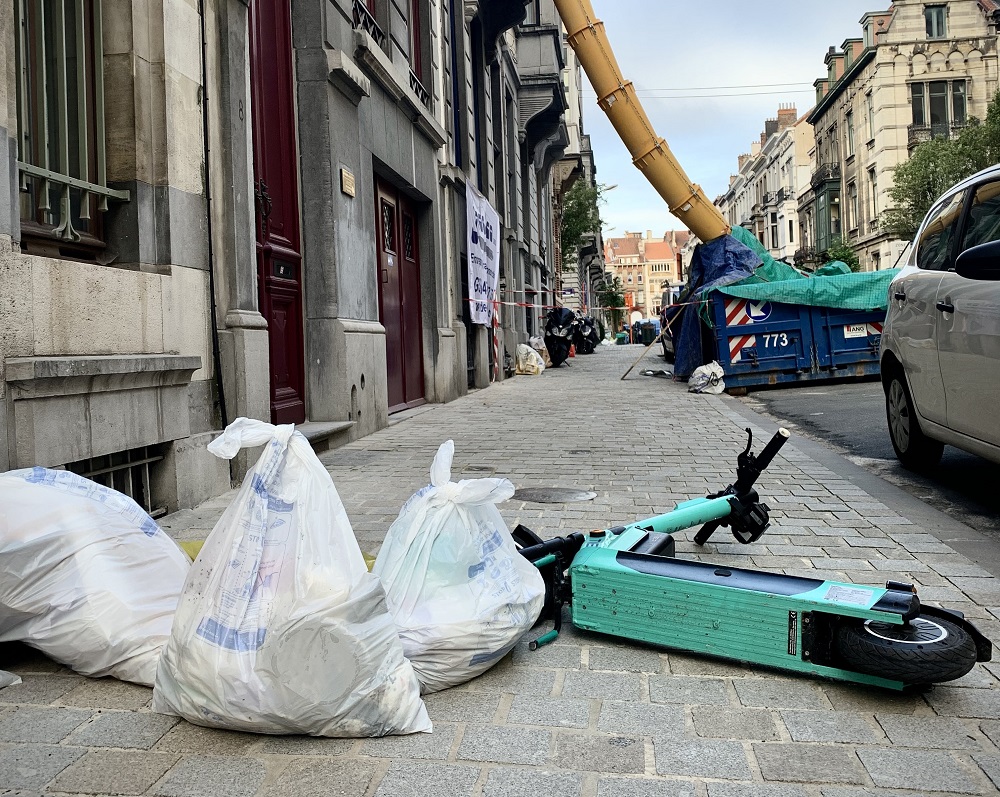Brussels is dirty. Plain and simple. I am not the only one who says this – opinion polls have been unanimous on this point too.
In fact, according to the surveys, Brusseleers are not satisfied by the cleanliness of their region, jumping up to being one of their top three concerns.
It is hard, sometimes even impossible, to defend against accusations that Brussels is dirty. Yes, it has become part of everyday life to walk with garbage bags laying around the curbside of the street, waiting to be picked up. But have you ever walked the streets of Brussels and wondered why garbage is left around so willy-nilly? For a city called the capital of Europe, there surely must be a better way.
Looking sh-ARP
Brussels cleanliness is managed by an association called “ARP”, short for Agence regionale pour la proprete (Regional Agency for Cleanliness). They undertake all the collection of the garbage for the region, as well as the cleanliness of the streets that are regional – basically all major roads in Brussels.
This has its advantages as in there is one centralized place that can coordinate and implement the policy. But it has its disadvantages too, in that even after an increase of 244% of its budget in 15 years (186 million euros in 2020 alone), and an increase of 20% of staff in 5 years, the Court of Audit has still criticized the management of the agency, and the people are left with a city turning into a laughingstock for visitors and residents alike.
Dysfunctional waste collection
But you may ask yourself, and justifiably so, where municipalities stand in all this mess. Well, they are responsible for the Communal only roads. Yet in most cases, such as with Uccle, they have no choice but to allocate their own municipal resources and staff to do the ARP’s job of cleaning Regional roads.
Which raises the question of the efficiency of centralizing and monopolizing the responsibility of the city’s cleanliness. In fact - it doesn’t have to be this way. Just a few kilometers away, in the city of Michelin, and neighboring capitals such as in Amsterdam, we can find a fully functioning waste management system.
Fighting Trash with Technology
There are concrete steps that Brussels can take, that will allow it to leap into the 21st Century, and at the same time drive down costs for the regional government. The first step is to introduce smart underground bins for crowded and narrow streets, and external bins for larger streets, as is the case in cities such as Rotterdam and Cambridge.
The second step is to start sharing the competency of the management of the garbage collection (Municipal Solid Waste) with the communes themselves.
A third step is to launch an app where residents can report illegal dumping, allowing the city to uncover hotspots and concentrate enforcement efforts on them, as was the case in San Jose, California.
A Clean Brussels
Brussels deserves better. Brussels deserves a cleaner look. Brussels being at the heart of Europe and symbolizing the capital of Europe, deserves a functional waste management system. It is doable and does not require a reimagining of the wheel.
What it requires is for the regional government and the regional agency ARP to become more sensible to the needs of Brussels residents, and accept having a more decentralized way of managing waste. It can make enough of a difference to stop calling Brussels a wasted city, but to begin calling it a spotless capital of Europe.


